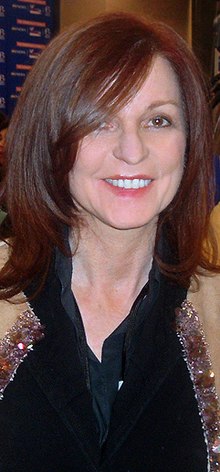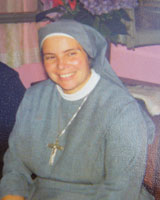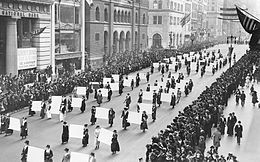Two of the biggest names
in second-wave women’s culture—Eve Ensler and Anne Lamott—shared the stage at
Royce Hall, UCLA, on October 29, 2017.
2017, with the end of 2016, marked the worst year US
women ages 40-80 have ever endured.
October
28
tolled a year since FBI Director James Comey ended the election campaign of
Hillary Rodham Clinton by alerting Congress to “new emails” and a re-opened FBI
investigation—only to say “Never mind” within hours of election day.
Yet Eve Ensler and Anne Lamott were asked the question
“Where do you find hope?”
“I want to write a book called Doomed: A Book of Hope,” joked Anne. “But I do radical self-care. And I help the poor.”
“At first my friends and I were like bees bitterly
bumping into glass,” she confessed. “Then there was a tiny
little change. And now I’m kind of
better.”
“Women are rising up and breaking out of the confines of
patriarchy!” declared Eve.
To get to hope, she explained, “I begin with something
dark and painful”—such as the suffering of “comfort women” in the Philippines,
used as sexual slaves by Japanese during World War II.
“They couldn’t afford not to hope. You have to
hope,” she said. As co-founder
of the One
Billion Rising protest movement to end rape and sexual
violence against women, she has listened to personal stories of these now
elderly women. One billion refers to the
statistic that one in three women world-wide will be raped or beaten in her
lifetime.
When
Anne’s life was at its lowest point, she said, “I was given salvation—the way
you’re given salvation in Christ—by the women’s movement. I say something. Others say ‘Me too.’ Then we start laughing,
sharing, recognition.”
Eve
added, “I would be in a mental hospital without writing. I wrote myself out of a catastrophic
childhood. Write or die of mental
illness, explode. It was a compulsion.”
Back
to the present, Anne noted the “lack of language” in the President’s statements
about building a wall, banning travel, imprisoning people. “We need to be people listening and watching
with empathy.”
“Look
at everything that’s being done and do the opposite,” said Eve. When they make
laws based on gender, we can support “gender-fluid, flowing sexuality.”
“I
will not let them take my joy away,” Anne declared, adding a line from Wendell
Berry’s essay “Manifesto: The Mad Farmer Liberation Front”: “Be joyful though
you’ve considered all the facts.” Laugh,
dance.
“Don’t
engage the orange virus, or you’ll be poisoned by it,” warned Eve. “I’ve never seen the Predator-in-Chief have a
feeling.”
“You
had to write yourself out of where you were,” interrupted Meryl Friedman,
moderator of the conversation, who curates Spoken
Word at UCLA’s Center for the Art of Performance. “How did you write yourself into a
future? Many of us feel obligated to
have a certain kind of future—a job, iPhone, data plan—but you have stayed on
the writer path.”
“In
the 60s, 70s, the American dream was melting away,” answered Eve. “There were civil rights marches, women’s
protests, antiwar demonstrations. I
didn’t want to be in the system. You
have to listen to what’s inside you—not to the ‘win, compete, have it, get it’
voices. Bill O’Reillys don’t matter when
you’re on the path.”
“My
dad wrote hell or high water,” said Anne.
“He got up every morning and did it.
He wrote eight books and had three kids.
All dreams are based on discipline: you just do it. You write 2-3 or 4-5 hours a day.”
Then
she described a woman at her church whose son was in prison. “But she never lost faith—as a decision. ‘I
know my change is going to come,’ she said.”
“Do
the one thing you know you can do,” Anne stressed. “Do the one-inch picture frame. Otherwise you’ll become overwhelmed and
paralyzed. Just take the action.”
“Our
change is going to come,” echoed Eve.
“Struggle is the highest form of song.
Writing is learning to struggle.
You get worn down in the struggle, but I will work until I am nothing
when I leave here.”
“We’re
all insane, every single person,” she laughed.
“I’m okay with that. You decide
on the brand of insanity you want your life to be. There are broken places in everyone. There isn’t anyone in the world who isn’t
traumatized. We’re all damaged—no one
has a clue. Socrates wrote, ‘The one
thing I know is that I don’t know anything.’”
“As Terry
Richey wrote, the point is not to try harder,” added Anne.
“It’s to release, to try less.
That’s been healing for me and for other sober women.”
“Seeing
what you see, feeling what you feel” is the key to recovery, Eve observed. “Instead of ‘I can’t ever talk about that,’
it may be exactly where you need to go.”
When
Meryl asked about their writing habits, Eve said she writes every day.
“I
write five days a week, not weekends,” admitted Anne. “But I’m always gathering. I have a Dr. Seuss inside me, a rag-bag
guy. I write it down. You’ve got to waste more time, wasting
paper.”
“Yes,
I’m always gathering ideas, hunting,” agreed Eve. “One book leads to another book. But when I’m working on something, everything
else stops happening. It’s deeply lonely
work; the hardest thing is the loneliness.
I use a candle, music to keep the aloneness flamed and fluid.”
A
last question from Meryl: “Do you ever feel overwhelmed by what people expect
of you?”
“When
I was a young mother writing a book, I felt ‘I have two kids, and the one I
feed wins,” said Anne, adding that “Now I just have two dogs, but there’s
always ‘KFUK radio’ inside my head.” When
someone says Anne has done good work, that radio in her head says, “You are a
fraud.”
“You
have to tell yourself encouraging things, nurture yourself,” she continued. “People are always branding you, saying that’s who you are. My father is always there in my mind, but I
don’t know who I’m going to be next. I
don’t know who I am today.”
“Don’t
freeze into one identity,” Eve explained.
“Seven years ago I was diagnosed with stage 3 or 4 cancer. I morphed into a new person. Expand, don’t brand.”
“We’re
frightened, but we get up,” Anne said. “It’s
like Mr. Rogers’ mother, who used to tell her son ‘Look
for the helpers’ when you feel flattened.
I’m, like, a really cranky optimist.
You think X was a bad thing, but often it turns out that it was the very
best thing.”
Eve
gave an illustration. During this
difficult time of the Trump presidency, “Many people are finding each
other. We found ways to stop the Muslim
ban; now we’re working to help women mend.”
This
conversation between Eve and Anne came after a week in which each day another
actress came out with accusations against Harvey Weinstein: Zelda Perkins on
Monday, Brit Marling on Tuesday, Mimi Haleyi and Dominique Huett on Wednesday, Natassia Malthe on Thursday, Daryl Hannah on
Friday, Rose McGowan on Saturday.
“Each
of us needs to know that what has happened to us, has happened before,” said
Eve. “We have to be unleashed, too. As Hitler gained power, no one took him seriously. He was just a narcissistic clown with a
domineering father; the bourgeoisie didn’t want to give up their comforts. We need to go into the street!"
“And
we need to encourage men who are with us,” noted Anne. “Men at the women’s
marches. We all need a softening of the
heart, becoming tender. Movements begin
in truth, justice, freedom, and a few crazy people.”
“Also
you need courage,” chimed in Meryl, the moderator. “You two have en-couraged us.”
“And
we need forgiveness, mercy—like the
Amish town who urged the mother of the killer not to move away; instead
they offered her forgiveness, the mercy of God,” added Anne.
“We
are in an emergency, so we are emerging,” declared Eve. “There are 850 million people living in
hunger in the world. We cannot be alone
right now. We are all profoundly
traumatized right now. We need a new
paradigm—not hierarchy and a big leader.”
The
finale of the evening was a reading by each of the speakers.
“Every
person’s story is important,” said Anne and began to read a story she had posted
on her son’s website, Hello
Humans, just a month earlier.
“Six years and one month ago, I stood on the
street… holding a sharp pencil,” she confessed, “… to stab my enemy in the
throat, if necessary…. the enemy was my grown
child….” Use this link to read
her story of freaking out over her son’s drug addiction.
“I
am over rape,” she began. “I am over
rape culture… I’m over thinking about
rape every day of my life since I was five years old.”
The
evening ended with Eve’s call to rise up, followed by a riot of applause.
“There
are approximately one billion women on the planet who have been violated. Can we rise together? Can we rebirth the culture because we know
that when women are free, safe, equal and allowed to be alive in all their intensity,
the whole story will finally change?”
Helga,
Suzy, and I rose to applaud and to congratulate each other and everyone else
for being present for such an empowering evening. During these hours in Royce Hall we had felt
the same energy and joy we’d had a year earlier, just a week away from electing
the first woman president.
That
victory had been stolen, and the credulity-stretching year of 2017 in politics was
getting worse each day as more disgusting pedophilia, rape, and sexual
harassment by famous men was revealed and hashed over in the news.
But
Eve Ensler and Anne Lamott had given us hope.
Each of the three of us is working on a book about our own life journey,
having met in a memoir class led by Shawna
Kenney, author of I Was a Teenage
Dominatrix. We walked out of Royce
Hall surrounded by others whose lives had been energized by these two
women.
“Words
are events, they do things, change things,” as Ursula Le Guin put it. “They transform both speaker and hearer; they
feed energy back and forth and amplify it.”







.jpg/220px-Monica_Lewinsky_2014_IDA_Awards_(cropped).jpg)



.jpg)




